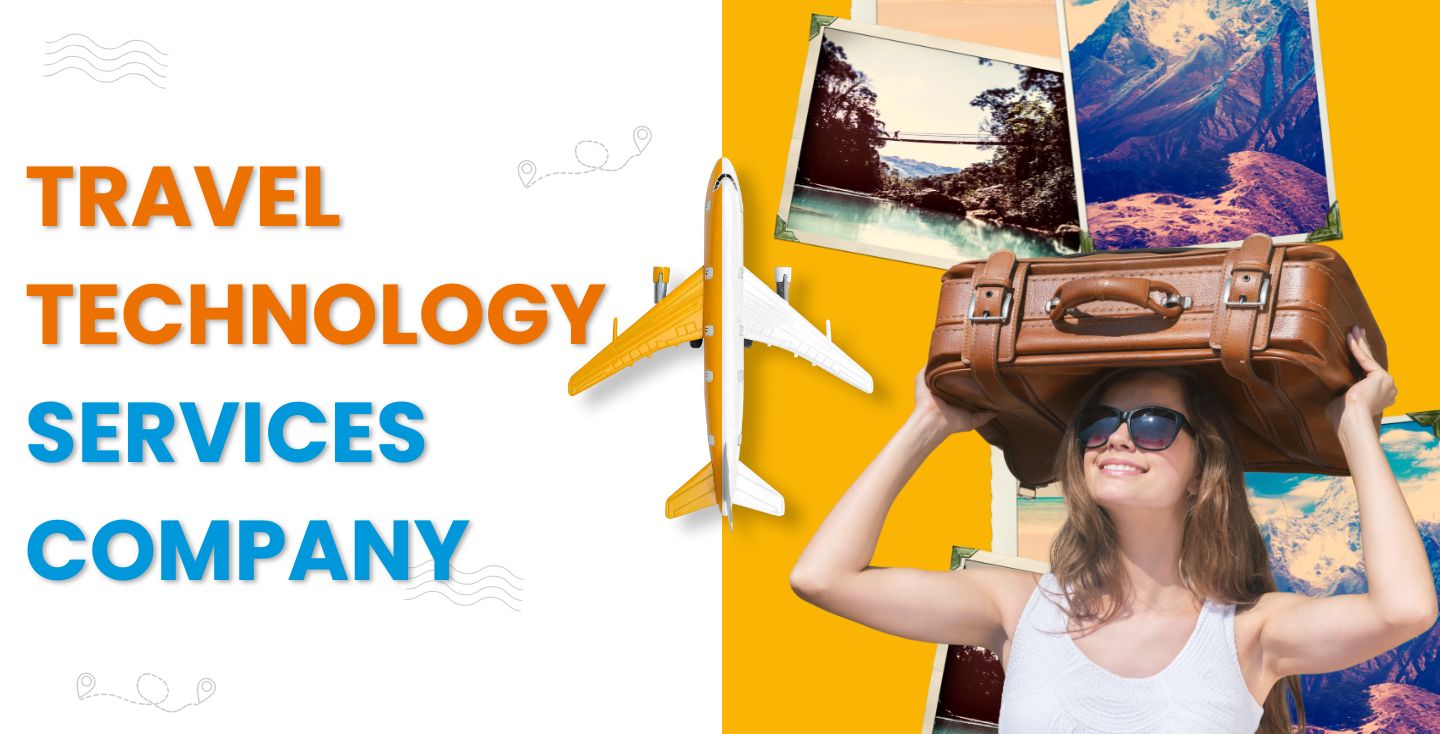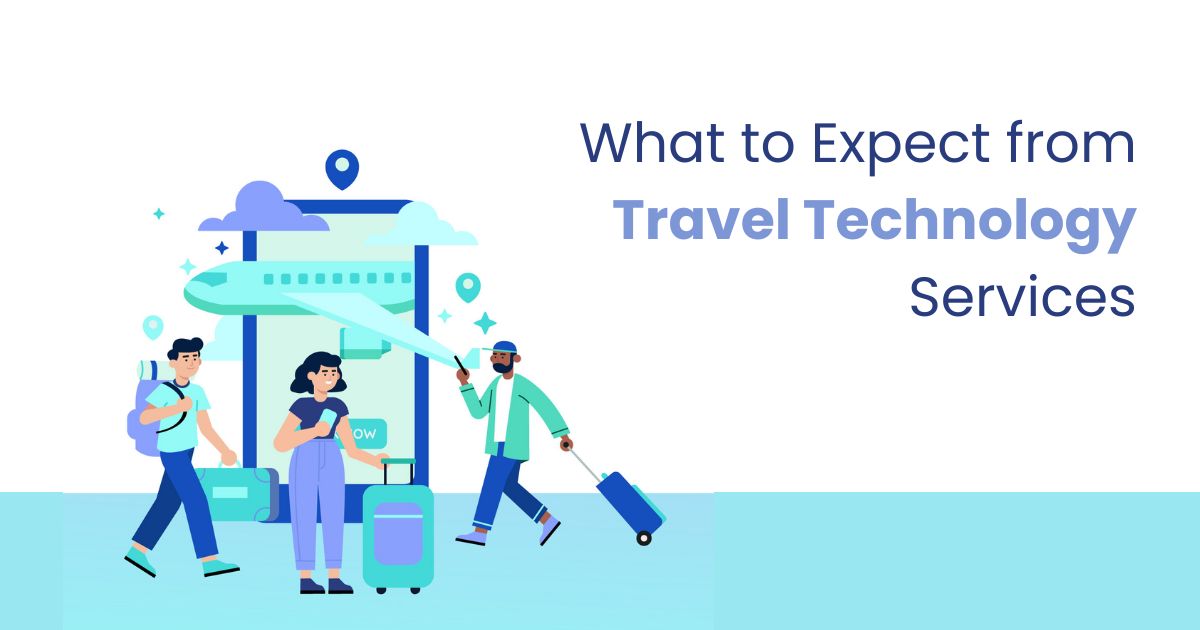Thanks to technological improvements, the travel sector has undergone a fundamental shift recently. Online travel agencies (OTAs) and other digital platforms are increasingly posing a serious threat to traditional travel companies with physical locations. But despite all of this upheaval, some travel companies have prospered by utilizing innovation and technology. This piece delves into the metamorphosis of a travel agency, examining how its partnership with a travel technology services provider has catapulted it into the digital era.
Travel Technology Solutions: Enhancing Your Travel Journey with Advanced Technology SolutionsUnderstanding the Need for Transformation:
- The Evolving Landscape of Travel: Discuss how the travel industry has evolved over the years, highlighting the rise of online booking platforms and changing consumer preferences.
- Challenges Faced by Traditional Travel Agencies: Explore the challenges faced by traditional travel agencies in adapting to the digital era, including the need to attract tech-savvy customers and compete with online giants.
- Recognizing the Potential of Technology: Emphasize the importance of technology in driving efficiency, enhancing customer experience, and staying ahead in a competitive market.
Collaborating with a Travel Technology Services Company:
- Introduction to the Travel Technology Services Company: Provide an overview of the technology services company, outlining its expertise and track record in the travel industry.
- Identifying Goals and Objectives: Explain how the travel agency and the technology services company collaborated to define clear goals and objectives for the transformation process.
- Tailoring Solutions to Suit Specific Needs: Discuss how the technology services company tailored its solutions to address the unique challenges and requirements of the travel agency.
Implementing Cutting-Edge Solutions:
- Streamlining Booking Processes: Explore how the implementation of advanced booking systems and automation tools has streamlined the booking process, reducing manual errors and improving efficiency.
- Enhancing Customer Experience: Highlight the introduction of personalized travel recommendations, interactive itineraries, and 24/7 customer support channels to enhance the overall customer experience.
- Embracing Mobile Technology: Discuss the development of mobile applications and responsive websites to cater to the growing number of customers who prefer to book and manage their travel arrangements on mobile devices.
Leveraging Data Analytics for Insights:
- Harnessing Big Data: Explain how the travel agency leveraged big data analytics to gain valuable insights into customer behavior, preferences, and market trends.
- Personalizing Marketing Strategies: Discuss how data-driven insights were used to tailor marketing campaigns and promotions to target specific customer segments more effectively.
- Forecasting Demand and Trends: Explore how predictive analytics were utilized to forecast demand for travel services and anticipate emerging trends, enabling the travel agency to stay ahead of the competition.
Ensuring Security and Compliance:
- Implementing Robust Security Measures: Highlight the importance of data security and compliance with industry regulations, detailing the measures taken to safeguard customer information and transactions.
- Adhering to GDPR and Other Regulations: Discuss how the travel agency ensured compliance with regulations such as the General Data Protection Regulation (GDPR) and other relevant laws governing the collection and processing of personal data.
Measuring Success and Driving Continuous Improvement:
- Key Performance Indicators (KPIs): Identify the KPIs used to measure the success of the transformation process, such as increased booking conversions, customer satisfaction ratings, and revenue growth.
- Analyzing Performance Metrics: Explore how performance metrics were analyzed to identify areas for improvement and refine strategies for future growth.
- Driving Continuous Innovation: Highlight the importance of fostering a culture of innovation within the travel agency, encouraging experimentation, and staying abreast of emerging technologies and industry trends.
Conclusion:
The transformation journey undertaken by the travel agency in collaboration with the travel technology services company serves as a testament to the power of technology in driving innovation and growth in the travel industry. By embracing cutting-edge solutions, leveraging data analytics, and prioritizing customer experience and security, the travel agency has not only survived but thrived in the digital age. As the travel industry continues to evolve, the lessons learned from this transformative experience will undoubtedly guide other travel agencies on their journey towards success in the digital era.
FAQ
What role does a travel technology services company play in transforming a travel agency?
A travel technology services company plays a crucial role in transforming a travel agency by providing expertise in implementing advanced booking systems, automation tools, mobile applications, and data analytics solutions. They collaborate with the travel agency to identify goals, tailor solutions, and ensure compliance with industry regulations. Essentially, they help modernize the agency’s operations, enhance the customer experience, and drive growth in the digital age.
How does technology improve the booking process for travelers and agents alike?
Technology improves the booking process by streamlining workflows, reducing manual errors, and enhancing efficiency. For travelers, advanced booking systems and mobile applications offer a user-friendly interface, personalized recommendations, and real-time access to travel information. For agents, automation tools simplify administrative tasks, allowing them to focus on providing personalized assistance to clients and increasing booking conversions.
What are the benefits of leveraging data analytics in the travel industry?
Leveraging data analytics offers numerous benefits in the travel industry, including gaining insights into customer behavior, preferences, and market trends. By analyzing large volumes of data, travel agencies can personalize marketing strategies, forecast demand, optimize pricing, and improve operational efficiency. Ultimately, data analytics empowers agencies to make informed decisions, enhance the customer experience, and stay competitive in a rapidly evolving market.
How does a travel agency ensure security and compliance while embracing technology?
Ensuring security and compliance is paramount for travel agencies operating in a digital environment. To achieve this, agencies implement robust security measures to safeguard customer information and transactions. They also adhere to regulations such as the General Data Protection Regulation (GDPR) and other relevant laws governing data privacy and security. By prioritizing security and compliance, agencies build trust with customers and mitigate the risk of data breaches or regulatory penalties.
What metrics are used to measure the success of a travel agency’s transformation journey?
Key performance indicators (KPIs) are used to measure the success of a travel agency’s transformation journey. These may include metrics such as increased booking conversions, customer satisfaction ratings, revenue growth, and operational efficiency gains. By analyzing these metrics, agencies can assess the impact of technology implementation, identify areas for improvement, and drive continuous innovation to maintain a competitive edge in the market.








